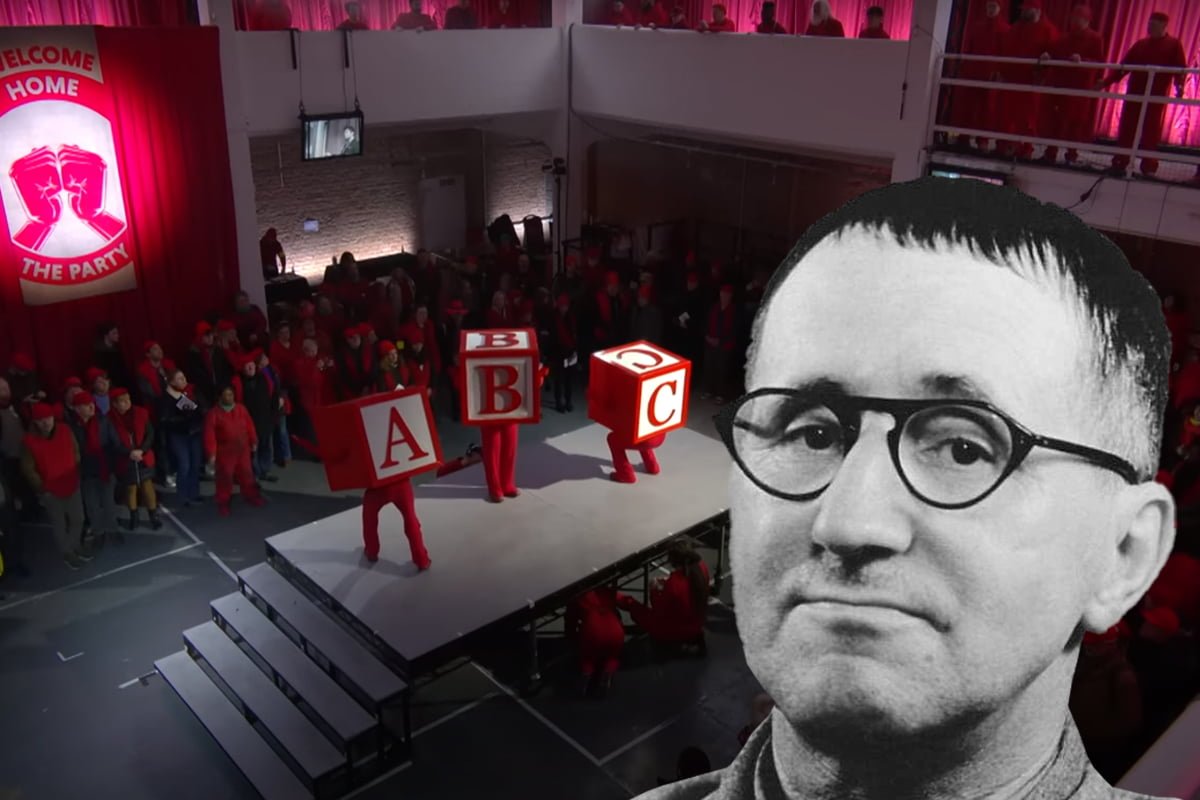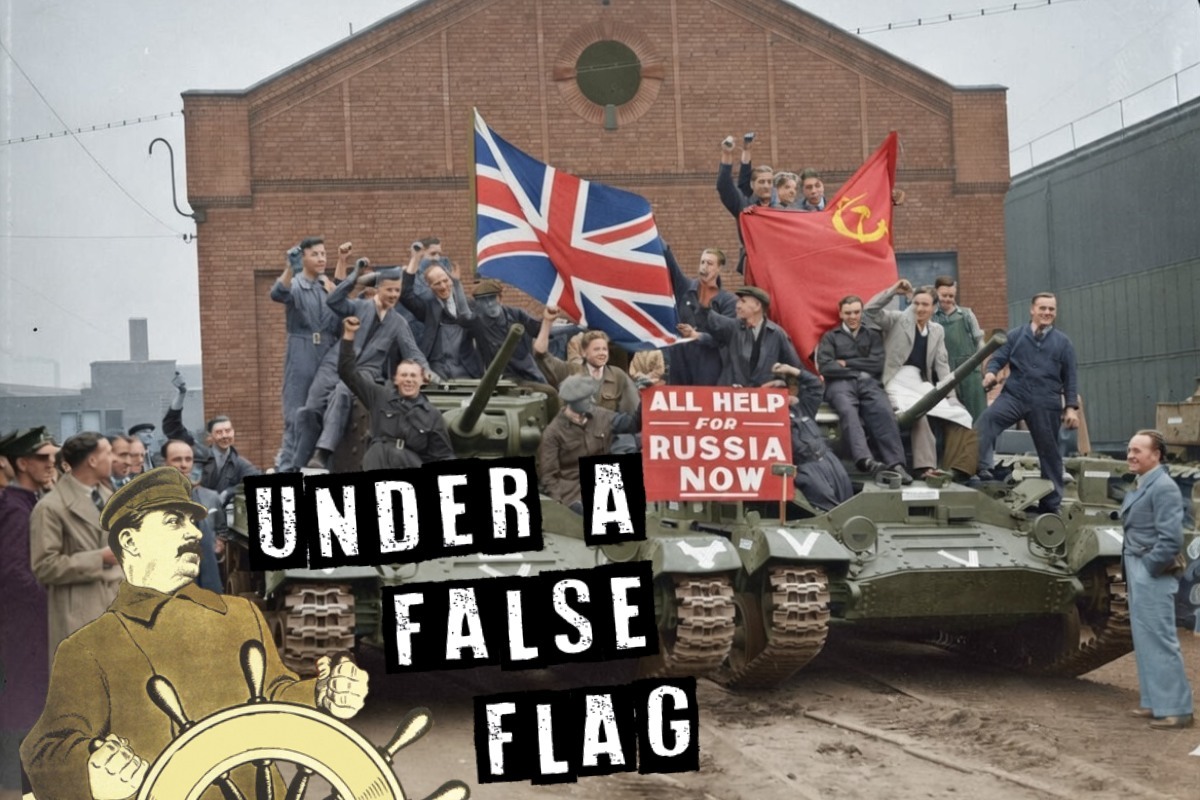Bertolt Brecht’s 1930 play, The Decision – recently performed by the Birmingham Opera Company (BOC), and available to watch on YouTube – revolves around four Soviet agitators sent to China to assist the Chinese Communist Party (CCP) in the 1925-27 revolution.
Whilst there, they meet a young comrade who is swept up in the revolutionary movement. He is eventually shot by the agitators for “endangering the movement” by letting his honest and genuine attempts to help the Chinese masses get in the way of the overall task of spreading the ideas of Marxism and building the revolutionary party.
It is this which Brecht presents as the only fundamental way for the revolution to succeed, and therefore end the misery of the Chinese workers once and for all.
In seeking to immediately help the masses and fight back against every injustice he sees, the young comrade inadvertently exposes himself and the agitators to the authorities. At the end of the play, this comrade accepts the decision of the agitators and sacrifices himself in order for them to escape, and for the sake of the revolution in China and internationally.
The party’s Central Committee, presented by the Control Chorus, in typical Brechtian style, explicitly reassures the agitators (and by extension the audience), that the correct decision was made, as such sacrifices are necessary in the struggle to change society.
The play, frequently misunderstood, and often used to attack Brecht, was tarred both in the USA, for being ‘Un-American’ and pro-communist, as well as in the Soviet Union.
Revolutionary theory
It is easy to watch the play in modern times and come away with the conclusion that it has an anti-Marxist message. For instance, a climactic scene shows the young comrade declaring that: “The classics are crap, and I am going to rip them apart; for man, real-life man, is crying out and his misery rips through the limitations of their teachings.”
The BOC certainly interpreted it in this superficial way. Any scene regarding revolution has a sneering quality to it, spoken with all the contempt for revolution that is typical of liberal comedy. For example, the characters are dressed contemptuously in red boiler suits, which one can only read as an ironic mockery of the proletariat.
This misses the point of the play entirely. Brecht, himself increasingly influenced by Marxism in this period, was not taking aim at Marxism, or the idea of revolution. In fact, he was trying to defend what he understood to be the traditions of Bolshevism and the building of revolutionary leadership.
Brecht’s interpretation of Marxism is a question that can be left for another time. In relation to the play, it is sufficient to say that what Brecht defends – and unintentionally criticises – is the Stalinist caricature of Marxism that had developed within the Soviet Union in this period.
Chinese Revolution
The 1925 Chinese Revolution, which the play is based on, saw a heroic struggle by the relatively small Chinese working class.
A wave of uprisings broke out across the country. Workers formed strike committees and elected delegates to a Strikers’ Delegates’ Conference. After this brave fight, the workers essentially held power in their hands in key cities – all they needed to do was seize it.
The Decision portrays the heat of the class struggle vividly.
The Song of Supply and Demand – a scene in which the young comrade tries and fails to deceive a capitalist – reflects the immense class antagonisms of the period. This is further emphasised by scenes of immense anger and strike action being carried out by the workers.
If led correctly by the Communist Party, the revolution could have been a success. A workers’ state could have formed on a far healthier basis than that which eventually came to power in 1949. This would have transformed the world situation, providing support to the isolated Soviet Union, and fanning the flames of world revolution.
Tragically, this did not happen. By 1925, the Communist International (Comintern), originally established by Lenin, Trotsky, and the Bolsheviks to fight for world revolution, had been usurped by Stalin and the conservative bureaucracy that he represented.
The heroic actions of the Chinese working class were seen as more of an irritation by the bureaucracy, who were desperate for stability and a semblance of order. This abandonment of world revolution would be expressed by the anti-Marxist ‘theory’ of ‘socialism in one country’.
Revolution betrayed
And so it was that the Stalinist Comintern, with all of the authority of the October Revolution behind it, ordered the CCP to dissolve itself into the rotten bourgeois Guomindang party, forbidding members to even criticise its leadership.
Lacking any faith in the ability of the Chinese working class to transform society, the Stalinists instead opted to make deals with the reactionary leader of the Guomindang, Chiang Kai-Shek – even going as far as to give him a position on the leadership of the Comintern!
In 1927, the workers of Shanghai seized the city and formed the Provisional Workers’ Bureau of Public Safety. This was essentially a revolutionary government. But on the orders of the Stalinist Comintern, the CCP advised workers to bury their weapons and welcome Chiang’s approaching army with open arms.
The following massacre of 12,000 CCP members, along with countless workers, stands as a bloody testament to the betrayals of Stalinism.
After the crushing of the revolution, the working class found itself decimated, and the CCP retreated into the countryside. This transformed the party into the peasant-based guerilla group that would ultimately take power in 1949.
Stalinism or Bolshevism?
Those critical of this disastrous line – including Chen Duxiu, the founder of the CCP and, later, a supporter of Trotsky’s Left Opposition – were removed from the party and replaced by Moscow loyalists.
After the catastrophe of the Shanghai massacre, in order to save face, Stalin quickly swung in the opposite direction, ordering a wave of insurrections by the CCP.
Empirical zig-zags from opportunism to ultra-leftism – implemented by decree – were characteristic of the Stalinist bureaucracy, which was motivated only by its own immediate interests, not any concern for what was necessary for the Chinese revolution.
Rather than politically persuading the party in relation to every new order and U-turn, something the Stalinists were incapable of doing, Moscow opted for subterfuge, backroom deals, and arguments made with the barrel of a gun.
Such methods couldn’t be further from those of Lenin and Trotsky, and from the traditions of Bolshevism.
The Communist International was founded at the height of the Russian Civil War, when the forces of reaction were closing in on the young workers’ state from all sides. Despite this, it hosted vibrant debates and political discussion over perspectives and revolutionary strategy.
Rather than relying on prestige, Lenin and Trotsky patiently explained, and aimed to win comrades over to their positions – positions based on theoretical understanding, not narrow bureaucratic interests.
Revolutionary sacrifice
When interrogated by the ‘House Committee on Un-American Activities’ in 1947, Brecht argued that: “[The Decision] is an adaptation of an old religious Japanese play called Nō Play, and follows quite closely this old story which shows the devotion for an ideal until death.”
This is the real message of the play: that to be a revolutionary is to place the needs of the collective over those of the individual; to throw your life into something which is far greater than any individual activist in the movement.
This is understood by the young comrade, who is ready to end his own life in the interests of the revolution.
This much is true. One of the hallmarks of Brecht’s work is the withering and didactic criticism of bourgeois society and its morals – and The Decision is in fact no different.
Despite showing great sympathy for the young comrade at times, Brecht makes it explicitly clear to the audience that something more than individual outrage and isolated activity is needed for society to fundamentally change.
And so it becomes apparent to the agitators and to the young comrade that the needs of the individual must be sacrificed for the needs of the collective, even if this results in one’s death.
Praise to the party
That the young comrade would show such willingness to sacrifice himself for a greater cause would have been completely alien and shocking to a bourgeois audience at the time. It is still shocking to the individualistic and self-centred bourgeois and petit-bourgeois today.
It is precisely this petit-bourgeois prejudice against proletarian self-sacrifice that Brecht is directly challenging in the play.
The reality is that such revolutionary sacrifice by the masses is partially what ensured the eventual success of the Chinese Revolution in 1949, amongst others.
Brecht, however, by portraying these historical events, has furnished us with a graphic illustration of how this ideal of revolutionary sacrifice was distorted by the Stalinist caricature that betrayed the Chinese revolution.
In the song Praise of the Party, a deafening chorus sings:
“Who do you think is the party? Does it sit in a big house with a switchboard? Are all its decisions unknown, all its thoughts wrapped in secrecy? Who is it?”
The revolutionary party is portrayed as a monolithic entity that knows and sees all; a crushing force that, at the end of the play, in effect orders the young comrade to accept the fact that he is to be shot – a young comrade whose over-enthusiastic approach was in reality encouraged by the Comintern just a year later, as the party arbitrarily ordered insurrections across China.
The degeneration of the Soviet Union and the rise of Stalinism is something that was not fully understood by Brecht. In fact, he had only recently discovered Marxism at this point in his career. One cannot blame him too much for this. Many other artists and fellow travellers failed to appreciate what was taking place in this period.
Nonetheless, despite not being one of Brecht’s finest works, The Decision was written with an earnest and genuine defence of Bolshevism and revolutionary self-sacrifice in mind.
This has been completely overlooked by the BOC, who have instead opted to permeate their production with sneering liberalism – and with a disdain for the very idea that one might fight and sacrifice themselves in order to change society.






